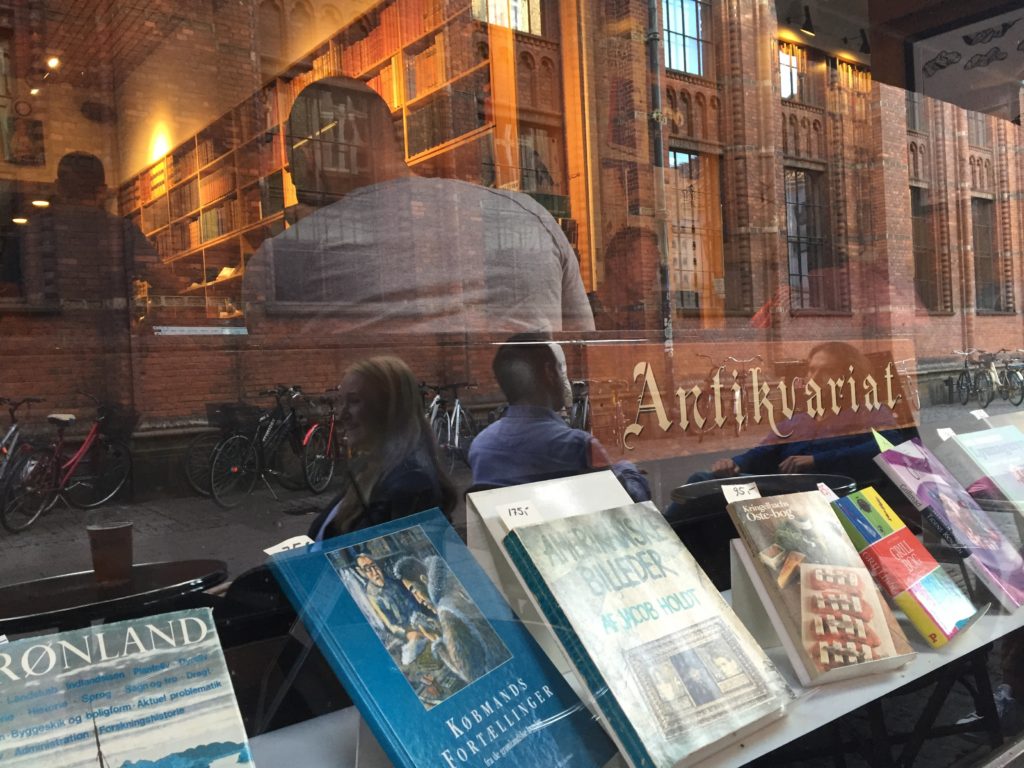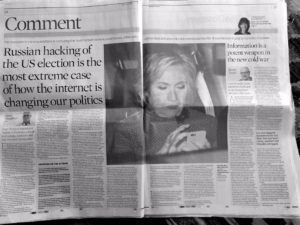This morning’s Observer column:
I’m looking at two photographs of the main street of the small town in which I was born. Both are taken from the same vantage point – looking up the hill to the T-junction at the top. The two photographs are separated by nearly a century: the first was taken in the 1930s, the second sometime in the last few years.
Topographically, the street remains largely unchanged: it’s a straight road with two- or three-storey shops and houses on either side. But the two photographs show completely different streets. The 1930s one shows a spacious thoroughfare, with people walking on the pavements on both sides of the street: here and there, two or three individuals stand in the road, possibly engaged in conversation. The contemporary photograph shows a narrow, congested gorge. The pavements are crowded with pedestrians, but there are no people on the road. In fact, in some places, one cannot even see its surface.
Why the difference between the two photographs? You know the answer: cars, vans and traffic. Both sides of the contemporary street have got lines of parked vehicles, effectively reducing the width of the road by 12ft. And there’s a traffic jam, which means that even the vehicles that aren’t parked are stationary.
This picture is repeated in millions of towns and cities worldwide…





